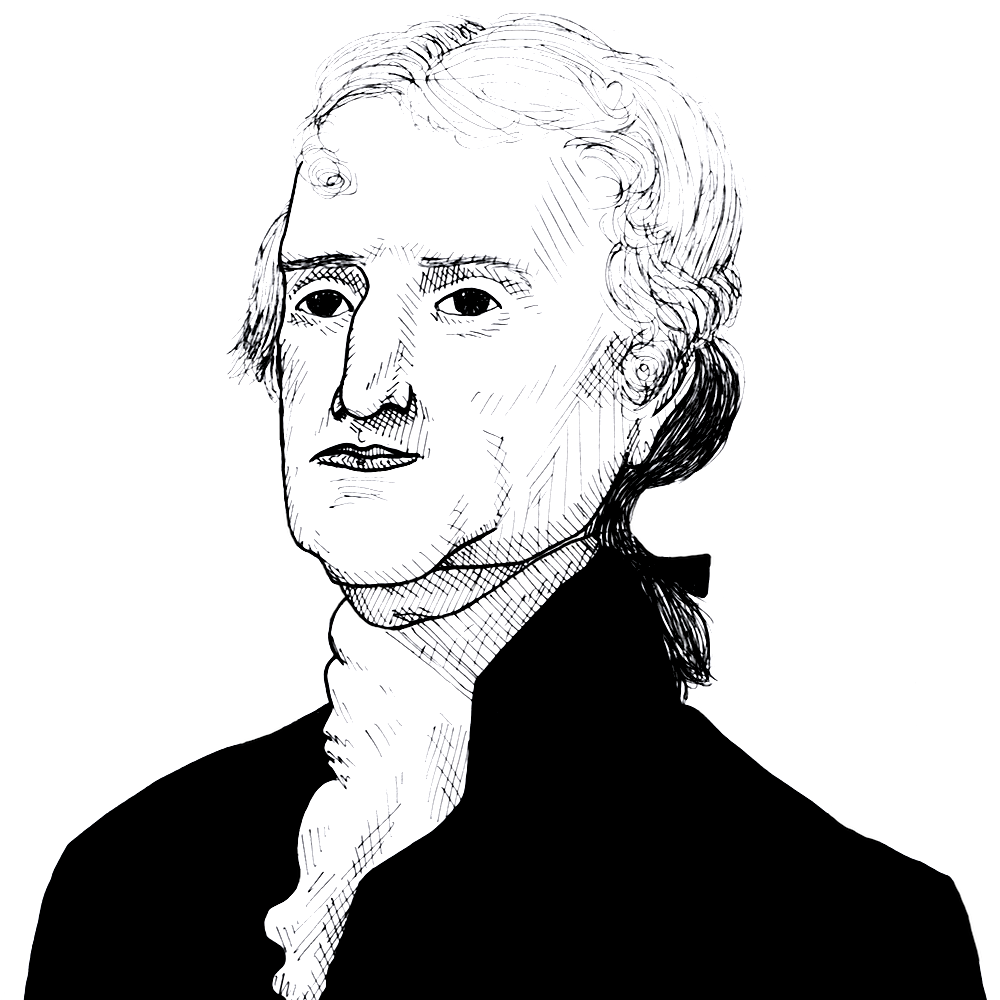
Thomas Jefferson in a letter to John Taylor condemns the system of banking as “a blot” on the constitution, as corrupt, and that long-term government debt was “swindling” future generations (1816)
Found in: The Works, vol. 11 (Correspondence and Papers 1808-1816)
In his retirement to Montecello Thomas Jefferson (1743-1826) complained about the lack of any good bookshops. So he was delighted to receive from John Taylor (1753-1824) a copy of his new book An Inquiry into the Principles and Policy of the Government of the U.S. (1814). This prompted a letter to Taylor (May 28, 1816) which reflected upon the nature of republics and of government debt.
Money & Banking
The system of banking we have both equally and ever reprobated. I contemplate it as a blot left in all our constitutions, which, if not covered, will end in their destruction, which is already hit by the gamblers in corruption, and is sweeping away in its progress the fortunes and morals of our citizens. Funding I consider as limited, rightfully, to a redemption of the debt within the lives of a majority of the generation contracting it; every generation coming equally, by the laws of the Creator of the world, to the free possession of the earth he made for their subsistence, unincumbered by their predecessors, who, like them, were but tenants for life… And I sincerely believe, with you, that banking establishments are more dangerous than standing armies; and that the principle of spending money to be paid by posterity, under the name of funding, is but swindling futurity on a large scale.